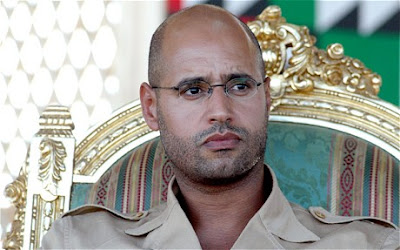A wave of proposed legislation has targeted the sharīʿa in many states during the last several years. As many commentators have pointed out, what is really at stake in this legislation is identity politics, as opposed to an actual threat.
 In Alabama, an amendment to the state constitution will be considered in 2012. This amendment prohibits the enforcement of any "foreign law" that contradicts state law or the U.S. constitution. Unlike an earlier version, the amendment does not mention the sharīʿa, although it still targets it in spirit.
In Alabama, an amendment to the state constitution will be considered in 2012. This amendment prohibits the enforcement of any "foreign law" that contradicts state law or the U.S. constitution. Unlike an earlier version, the amendment does not mention the sharīʿa, although it still targets it in spirit.
Rep. RoseMarie Swanger (R-Lebanon) recently proposed a similar bill (House Bill 2029) in the Pennsylvania legislature. Her bill targets any "foreign legal code or system" that contradicts state or federal law.
***
 In Alabama, an amendment to the state constitution will be considered in 2012. This amendment prohibits the enforcement of any "foreign law" that contradicts state law or the U.S. constitution. Unlike an earlier version, the amendment does not mention the sharīʿa, although it still targets it in spirit.
In Alabama, an amendment to the state constitution will be considered in 2012. This amendment prohibits the enforcement of any "foreign law" that contradicts state law or the U.S. constitution. Unlike an earlier version, the amendment does not mention the sharīʿa, although it still targets it in spirit.Rep. RoseMarie Swanger (R-Lebanon) recently proposed a similar bill (House Bill 2029) in the Pennsylvania legislature. Her bill targets any "foreign legal code or system" that contradicts state or federal law.
"I have read about some other states where foreign law has been creeping into the courts," Swanger told the Pittsburgh Post-Gazette. "I'm thinking of the Near East, where women are not highly regarded and don't have the same rights as men. If those women come here, I want them to have the same rights that we have," she said. Swanger worked with an organization called American Laws for American Courts to write the bill, which has been challenged by the Council on American Islamic Relations.
Like bills in other states, House Bill 2029 could create headaches for Orthodox Jews, Catholics and Muslims in Pennsylvania, who follow foreign laws in mundane issues like kosher food, drafting wills, divorces, immigration cases, etc.
In my view, the anti-sharīʿa discourse in the U.S. consists mainly of empty rhetoric rather than informed concern based on substantive arguments. While this may appear obvious to many readers, law makers like Swanger consistently demonstrate astounding ignorance about Islam. Another example: last year, according to Mother Jones magazine, Gerald Allen, a state senator, introduced a bill to ban sharīʿa in Alabama courts. His staffers copied the definition of sharīʿa used in the bill, nearly unchanged, directly from Wikipedia!
Aspiring presidential candidates like Rick Santorum, Michelle Bachmann, and Newt Gingrich continue to make inflammatory statements against the sharīʿa and American Muslims. Newt Gingrich called the sharīʿa a "mortal threat to the survival of freedom in the United States and the world as we know it."
I am not asking politicians to become experts on the sharīʿa, but rather I want to call them out for making ridiculous, misleading, exasperating statements about it, at a time when suspicion and division amongst American communities is highly counterproductive and damaging. Sadly, the level of ridiculousness has reached a point worthy of parody on The Simpsons, and the rhetoric against the creeping sharīʿa is likely to intensify during the upcoming election year.
***
Even worse, are violent, abominable acts which were recently perpetrated in Nigeria in the name of the sharīʿa. I will discuss these atrocities in an upcoming post.





